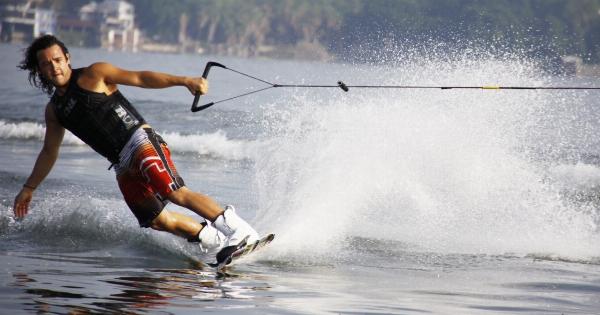Water skiing is an exhilarating water sport that combines thrill and adventure. As with any outdoor activity, it is important to ensure that you have the right insurance coverage in case of any unforeseen accidents or incidents.
Before hitting the water, it’s essential to have a clear understanding of your insurance policy and the coverage it provides. In this article, we outline some important questions to ask your insurer to ensure you have the right coverage for any potential risks.
1. What does my insurance policy cover?
The first and most important question to ask your insurer is about the coverage included in your policy.
Understanding the specific events, damages, and liabilities covered by your insurance can help you evaluate the adequacy of your policy and whether you need additional coverage.
2. Does my policy cover water skiing accidents?
Water skiing involves certain risks, including falls, collisions, and injuries. It is crucial to inquire whether your insurance policy provides coverage for accidents that may occur while water skiing.
Accidents can result in costly medical bills, damage to equipment, and potential liability issues.
3. What is the extent of liability coverage for water skiing?
Liability coverage is designed to protect you in case you cause injuries or property damage to someone else while engaged in water skiing.
Make sure you understand the limits and conditions of your liability coverage, as well as any exclusions that may apply. It’s important to have sufficient liability coverage to protect your assets in the event of a lawsuit.
4. Is my water skiing equipment covered?
Water skiing equipment can be quite expensive, including skis, ropes, handles, and life vests. In case of theft, damage, or loss of your equipment, it’s essential to know if your insurance policy provides coverage for these items.
Additionally, ask about any deductible that may apply to your equipment coverage.
5. Does my policy offer coverage for injuries to others?
If you unintentionally cause injuries to other individuals while water skiing, it’s important to have coverage for their medical expenses.
Inquire about your policy’s provisions for bodily injury liability and the limits of coverage provided.
6. Do I need additional coverage for water skiing tournaments or competitions?
If you plan to participate in water skiing tournaments or competitions, your standard insurance policy may not provide adequate coverage for these activities.
Ask your insurer whether you need to purchase additional coverage specifically for these events, as they may involve higher risks.
7. What should I do in case of an accident or injury?
In the unfortunate event of an accident or injury while water skiing, it’s essential to know the proper procedures to follow to ensure your insurance claim is handled smoothly.
Ask your insurer about the steps to take, the documentation required, and the time frame for submitting a claim.
8. Are there any exclusions or limitations that I should be aware of?
Insurance policies often have exclusions or limitations that may affect your coverage. These can include specific locations, activities, or conditions that are not covered by your policy.
It’s crucial to be aware of these exclusions and limitations to avoid any surprises in case of a claim.
9. Can I add additional insured parties to my policy?
If you plan to water ski with friends or family members who don’t have their own insurance coverage, it may be possible to add them as additional insured parties under your policy.
This can provide them with some level of coverage in case of accidents or injuries.
10. Can I make changes to my policy or purchase additional coverage?
If you discover any gaps in your current insurance coverage or feel the need for additional protection, ask your insurer about the process of making changes to your policy or purchasing additional coverage.
It’s important to review and update your policy regularly to ensure it aligns with your current needs and circumstances.
Remember, each insurance policy is different, and it’s crucial to carefully read and understand the terms and conditions of your specific policy.
By asking these important questions to your insurer, you can gain a clear understanding of your water skiing insurance coverage and make informed decisions to protect yourself, your equipment, and others.






















